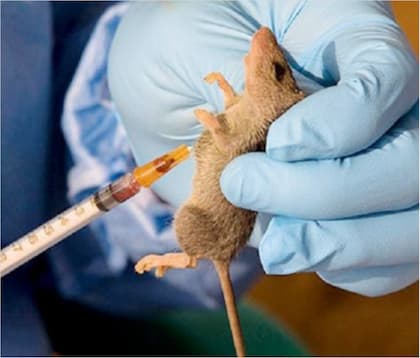Benue State has recorded an increase in the mortality rate of Lassa fever, as no fewer than 63 people have lost their lives.
In a similar vein, the state is ranked the highest in tuberculosis within the North Central Zone and sixth across the country.
The State Commissioner for Health and Human Services, Dr. Yanmar Ortese, disclosed this during a press conference held in Makurdi on Monday to commemorate the 2024 World Health Day
The Commissioner disclosed that over 50,000 members of the most vulnerable population have been enrolled into the State Health Insurance Scheme under the basic health care fund programme across the state.
He further said that 5,500 Internally Displaced persons (IDPs) have also been enrolled in the Health Insurance Scheme, thereby optimising healthcare delivery to the most vulnerable of the vulnerable.
The Commissioner stressed the need to establish a state-of-the-art Molecular Laboratory to enhance state disease surveillance and response capabilities.
He said, “Our fight against tuberculosis and TB is ongoing, with the State ranking 6th in the country and 1st in the North Central zone.
“We call upon all stakeholders across sectors of the Government, international partners, the private sector and civil society to join hands with us in consolidating our efforts to strengthen our health system to cope with the ever-increasing needs of our large population.
On Lassa Fever, the commissioner said that 820 cases were received, 63 confirmed, with 16 deaths, while two persons were on admission and in very stable condition.
The Commissioner added, “We are responding to the largest Fever outbreak in the history of our State”, adding that their capacities are stretched, particularly as the state lacks a functional public health Molecular Laboratory
Also speaking, the Regional Director of the World Health Organisation for Africa (WHO), Dr. Matshidiso Moeti, who was represented by Dr. Mohammed Abdulkarim, WHO State Coordinator, stated that consideration of vulnerable groups must be assessed.
He maintained that their needs ought to be purposefully integrated into health programmes at all levels to accelerate progress towards Universal Health Care (UHC).
“We know that many in our region still need help with access to quality essential health services due largely to unfulfilled rights. This is further compounded by protracted and ongoing crises such as conflicts, climate change, food security, disease outbreaks, and epidemics.
“The number of people aged 15 and over living with HIV is still high, at an estimated 24.3 million in 2021 (3.4% of the total population), compared to 15.6 million in 2005. This reflects the continued transmission of HIV despite reductions in the incidence of newly infected people and the benefits of significantly expanded access to anti-retroviral,” the WHO Director decried.







